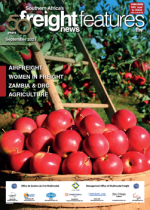Za mbia and the neighbouring Democratic Republic of Congo (DRC) are set on adding value to their mineral wealth by manufacturing components and batteries for electric vehicles.In 2022, Zambia and the DRC signed a Common Governance Framework, called the “DRC – Zambia Battery Council”.“The era of EVs is in sight, and batteries are poised to become a leading power source for mobility,” commented Zambian commerce, trade and industry minister Chipoka Mulenga at the signing.“Therefore, agreement to work together towards the development of the battery electric vehicle value chain sets us on the right path towards sustainable development and inclusive growth.”Together the two countries have major reserves of some of the minerals required for the manufacture of batteries – particularly copper and cobalt.The DRC has the largest cobalt reserves in the world, estimated at some four million metric tons.Currently the DRC supplies about 63% of the world's cobalt.GlobalData put Zambia as the world's 13th largest producer of cobalt in 2022, with output up by 5% on 2021.The DRC is the world’s fourth-largest copper producer, with Zambia number eight.Large lithium deposits (another essential mineral for batteries) have recently been discovered in both the DRC and Zambia.In April 2023, the African Export-Import Bank (Afreximbank) and the United Nations Economic Commission for Africa (ECA) signed a Framework Agreement with the DRC and Zambia for the establishment of Special Economic Zones for the production of battery electric vehicle and related services.Afreximbank and ECA will lead the establishment of an operating company in a consortium with investors (both public and private) from DRC and Zambia, as well as international investors.In another development, the British government has entered into an agreement aimed at securing supplies of the minerals for its own electric vehicle manufacturers.It has signed a partnership agreement with Zambia covering clean energy and critical mineral supply worth more than $3.7 billion.Securing a consistent supply of copper and cobalt is needed to enable Britain to meet its target of reaching net-zero carbon emissions by 2050.This follows the December 2022 signing of a memorandum of understanding by the United States, Zambia and the DRC to support the development of a value chain in the electric vehicle sector.Christian Géraud Neema Byamungu, an analyst and observer of China-Africa relations at the Centre for Strategic & International Studies, commented: “China's dominance over the supply chain of key minerals to the energy transition had many in the West worried, especially in the United States, where the Biden administration is looking to scale up EV sales by 2030.“Without a doubt, it (the agreement) offers a unique opportunity for these two countries to move up the ladder of the value chain. The competitiveness it brings into a sector largely dominated by China would offer more bargaining chips to the DRC and Zambia toward Chinese companies,” he writes.

